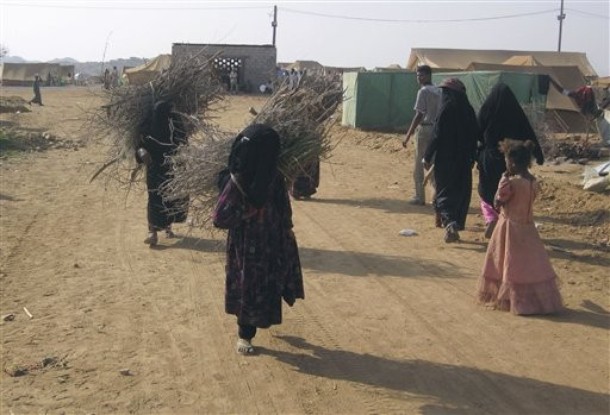Is the U.S. Repeating Cold War Mistakes?
Do airstrikes in Yemen mean the U.S. is following a Cold War path for the war on terror?

One of the most intense debates during the early years of the Cold War was the extent to which "indigenous" communist movements were really that, or whether the Kremlin was a global puppet master, manipulating everything. Many in the U.S. at the time tended see communism as a monolith and the Kremlin as the hidden hand, secretly directing events. The reality was more nuanced. The Kremlin did extend its influence into other states, but it couldn't control all of them (see Ukraine and China, for instance). Just because a country "went communist" did not ipso-facto mean that it would take its marching orders from Moscow.
One of the consequences of the U.S. viewing communism as a monolith was the tendency to plunge the U.S. into a series of damaging, even catastrophic, interventions that didn't really reduce Soviet power but did take a bite out of U.S. strength. When we viewed global communism through more sophisticated eyes, we were able to pry apart China and Russia and begin to shore up our position after Vietnam.
No historical analogy is perfect, but we seem to be in a similar dynamic with respect to al Qaeda and "Islamic terrorism" more generally. After 9/11, there was a lot of talk about a broad-based war on terrorism that would tackle not just al Qaeda but groups like Hamas and Hezbollah and states like Iran and Iraq which were seen to facilitate terrorism (but not, of course, the states actually responsible for whipping up the Sunni jihadist whirlwind - Saudi Arabia and Pakistan). It was an undifferentiated lump and we would vanquish it all.
Two wars later, we have an administration that appears eager to scale back the conceptual framework of the war on terrorism into something more bite-sized. But even if the Obama administration would like to pare back to the more discrete goal of defeating "al Qaeda," the job has been made more difficult by the emergence of "like-minded" terrorists with only a tenuous connection to the "core" group inside Pakistan.
This poses a particular problem, I think, for U.S. policy towards Somalia and Yemen. Both are war-torn countries dealing with some insurgent elements that have links to al Qaeda. Do these groups share al Qaeda's core goals of bloodying the U.S. so we'll withdraw support for Arab autocrats? Will these individuals facilitate attacks against American targets in North Africa and beyond? And - most importantly - is that a threat worth taking military action against when weighed against other risks?
These seem like the kind of questions we need to be addressing before stuff like this:
The United States provided firepower, intelligence and other support to the government of Yemen as it carried out raids this week to strike at suspected hide-outs of Al Qaeda within its borders, according to officials familiar with the operations.
Those raids, the AFP reports, killed 49 civilians.
There are good reasons for using force against terrorist targets, and if the New York Times' report is to be believed, those targeted in the Yemen attack had fled Pakistan and so could plausibly be linked to the "core" al Qaeda threat which we are rightly concerned about. But the military is a blunt instrument and given the roiling instability in both Yemen and Somalia, it would be nice if the administration offered some kind of serious defense of its actions rather than just waving a hand and saying "al Qaeda," as if that's sufficient. Particularly because it seems intent on advertising its role in this attack.
(AP Photos)





